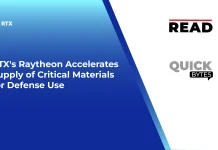Paragon Space Development Corporation (Paragon) is excited to announce that its Humidity Control Subassembly (HCS) has been successfully tested and operated on the Boeing CST-100 Starliner Orbital Flight Test-2 prior to its successful landing on Wednesday, May 25th. Boeing’s CST-100 Starliner successfully docked with the International Space Station (ISS) for the first time on May 20, 2022 after lifting off May 19th from Florida. The HCS platform was developed by Paragon under a fixed price development and production contract to Boeing and is built upon Paragon’s patented technology as well as decades worth of time-tested experience and knowledge focused on development of life support systems for extreme environments.
Also Read: NASA to Pick Next Generation Spacesuits for Moonwalking, Spacewalking
“It’s really quite an accomplishment to have the HCS aboard this historic mission – the first truly new humidity control technology developed in 60 years of human spaceflight. It is a testament to the excellent work and dedication of our team at Paragon, and that of our partners at Boeing,” said Grant Anderson, Paragon‘s President and CEO. “Our team is excited that the HCS system passed its debut flight to the ISS and will support the transport of humans back and forth for years to come.”
The HCS will provide essential life support functionality for next generation human spaceflight operations and is the most recent spaceflight technology fielded by Paragon for the ever-expanding human spaceflight market. Paragon’s HCS technology is being integrated into the Northrop Grumman HALO module and will provide contingency life support capability during crewed Artemis missions to–and around–the Moon.
“As humanity accelerates into space, with new missions ahead and new technological, exploration and scientific goals to achieve, it will be systems like the HCS that make it all possible. Without life support and environmental controls, you don’t have human spaceflight – it’s really that simple,” noted Barry Finger, Paragon’s VP of Engineer, adding that, “With Boeing’s vision and stick-to-it approach, as well as that of all the partners on this fantastic team, we all made the difficult a reality – and that is what we at Paragon see as our strength.”



